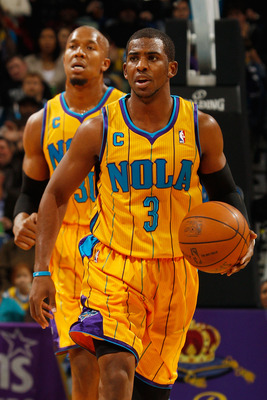It took less than a month following the NBA lockout for all
hell to break loose.
With David Stern’s vetoing of the blockbuster trade that
would have sent Chris Paul to Los Angeles, Pau Gasol to Houston and Lamar Odom
and other assets to New Orleans, we see that the agreement between players and
owners that will give us a season did nothing to fix the league’s fundamental
problems.
Though the NBA has a salary cap, it is becoming more and more
like MLB.
Superstars are dictating where they want to play and small market teams are left with the painful decision of getting compensation for them or watching them walk for nothing when their contract expires.
Superstars are dictating where they want to play and small market teams are left with the painful decision of getting compensation for them or watching them walk for nothing when their contract expires.
LeBron James, ‘The Decision’ and the Cavs getting nothing
out of James but a bad record the following season has left owners weary of
banking on a star to resign with their original team when free agency comes
calling their name.
One of the owners’ lockout gripes was that the players have
gained too much control.
There’s no denying that is indeed correct.
Carmelo
Anthony wanted to go to New York, everyone knew it, including Denver, so he was
traded to the Big Apple for a solid package of young players.
Yes, Anthony essentially dictated the trade but he was
leaving anyway and the concept of free agency gives players the individual
freedom to sign where they want so long as the team can afford them. Most of
the time that’s a big market where more advertisement dollars are up for grabs.
Small market teams are naïve to wait for the offseason and hope their stars will return.
It’s difficult to pick a side between the owners and
players. You do feel for small market owners who are continually ditched by
players who grow with their original franchise then bolt for the bright lights
and big market stage after their first contract.
At the same time, should we expect anything less?
This isn’t
the days of the reserve clause that once bound baseball players to teams and
allowed no flexibility. That was abolished for good reason. Right now it seems
that’s the only way to appease some of the NBA’s unhappy owners.
It’s natural in many realms and careers for small markets to
be launching pads for moves to larger markets. It happens in TV when an anchor
starts out in a small market and works their way up the ladder, the smaller stations left to start with young talent again.
What David Stern did in vetoing the trade was a big blunder.
It makes him appear an authoritarian and sets a dangerous precedent for future
trades of this nature.
But it’s also understandable why he did it. He’s trying to
change a league dynamic that defies competitive balance. Every league wants to
be the NFL.
None succeed.
Stern tried to assert his power but slapping a small
band-aid on a massive, bleeding wound won’t suppress it.
The lockout didn’t fix it. Stern holding Paul hostage in New
Orleans for 66 games doesn’t either.
Los Angeles, New Orleans and Houston all lost in the
short-term. Long-term, fans will continue to lose as a product continues to
spiral out of control further away from any semblance of competitive balance.

No comments:
Post a Comment